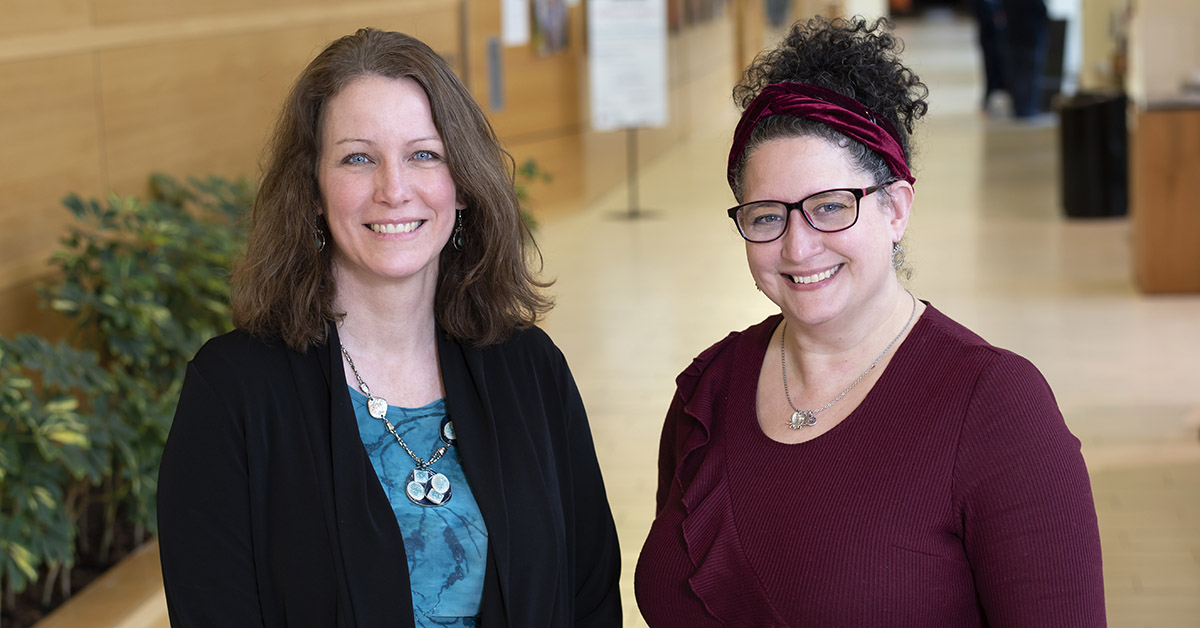
PHILADELPHIA (January 24, 2022)—The two leaders of the Immersion Science Program (ISP) at Fox Chase Cancer Center, which allows students to explore science in a hands-on way while also providing valuable data that can help working researchers, have received the prestigious Elizabeth W. Jones Award for Excellence in Education from the Genetics Society of America (GSA).
“To be recognized by such an exceptional group of scientists for the educational work we are doing is truly an honor, especially as it recognizes the importance of making genetics accessible to the public through research-based education efforts,” said Alana M. O’Reilly, PhD, the scientific director of the ISP and associate professor in the Molecular Therapeutics research program.
“The National Cancer Institute has recognized that education and community engagement are core parts of their mission to conquer cancer. Our efforts align with this mission and help uphold the ideals of the NCI,” she added.
O’Reilly, who has been involved with the GSA since 1999, said the award is highly appropriate, since the central scientific component of ISP is a chemical genetic screen, where students define the effects of different nutrients on cancer signaling pathways. “Our goal is to use this genetics approach to develop diets tailored to enhance the efficacy of targeted therapies in cancer.”
Dara Ruiz-Whalen, PhD, the ISP’s education director, said the program serves a vital role in science education. “Giving all students an equitable platform to engage in research is key. Our programs give participants a place to express themselves without fear and provides an outlet to support them in seeking answers to questions that impact their loved ones or communities.”
O’Reilly said that students design their research projects based on their experiences, health challenges in their families, and the goal of curing cancers that affect people they love. “This provides them with confidence to ask their own research questions, engage members of their families in the research effort, consider how to include their communities in their work, and how to leverage their experimental results to make changes in cancer incidence and outcomes,” she said.
The Elizabeth W. Jones Award for Excellence in Education recognizes individuals or groups who have had significant, sustained impact on genetics education at any level. The award was named posthumously for Elizabeth W. Jones, PhD, who was the recipient of the first GSA Excellence in Education Award in 2007. She was a renowned geneticist and educator who served as the 1987 GSA president and as editor-in-chief of GENETICS, the GSA’s journal.
“It is an honor to be recognized for our work with students and teachers in the field of genetics education and to be included in a list of amazing scientists and educators in the field,” said Ruiz-Whalen.
Despite such accolades, O’Reilly said she and Ruiz-Whalen are constantly working on ways to improve the program. Currently, they are working on efforts to understand how ancestral genetics contributes to cancer. “ISP students will work with Fox Chase, University of Pennsylvania, and Rutgers-Camden faculty to investigate how inherited genetic changes impact the development of particular cancers, with a focus on diseases that particularly affect the Philadelphia community,” O’Reilly said.